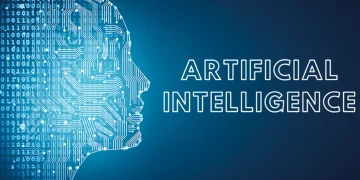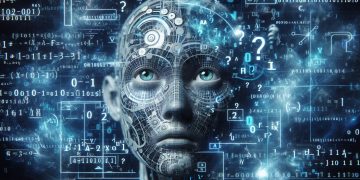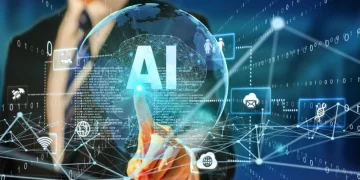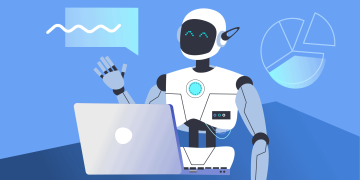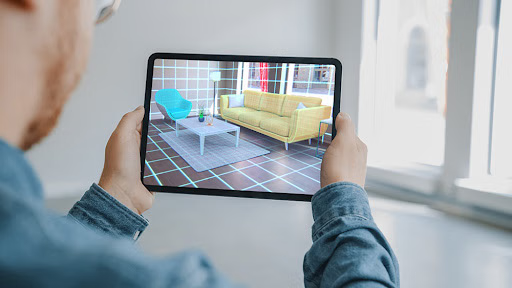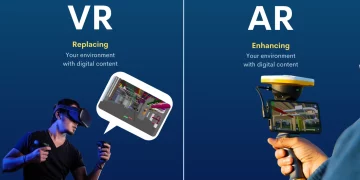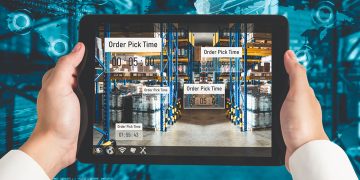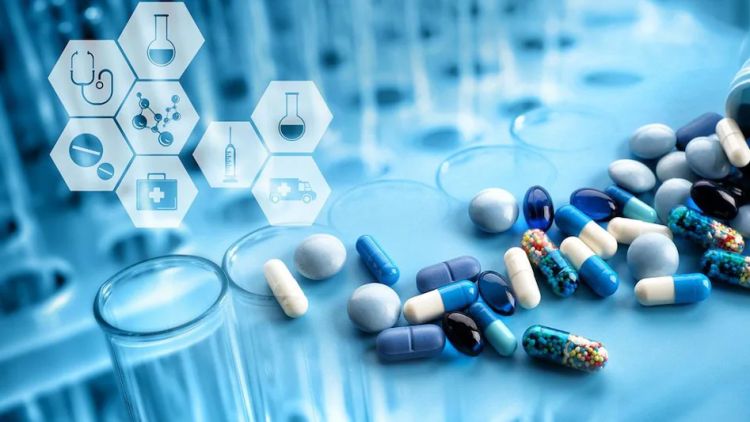Introduction: When Healthcare Becomes Personal
For centuries, medicine has relied on averages—average doses, average symptoms, average outcomes. Doctors treated patients as part of a population rather than as individuals. But biology has never truly been “average.” Every person carries a unique genetic code, lifestyle, environment, and microbiome that shape their health in distinct ways.
In the 21st century, biotechnology and data science have joined forces to end this one-size-fits-all approach. The result is precision medicine—a healthcare model that tailors prevention, diagnosis, and treatment to the individual’s unique biological profile. Powered by genomics, artificial intelligence, and massive datasets, precision medicine is transforming healthcare from reactive to predictive, from treatment to prevention, and from population-based to person-centered.
This is not just a medical innovation; it is a cultural shift. For the first time, the future of medicine depends as much on algorithms and data as it does on stethoscopes and syringes.
1. The Foundation: The Genomic Revolution
The precision medicine movement began with a monumental scientific achievement: decoding the human genome.
1.1 The Human Genome Project: A Turning Point
Completed in 2003, the Human Genome Project mapped all 3 billion base pairs of human DNA. It took 13 years and cost nearly $3 billion. Today, sequencing an entire human genome takes less than a day and costs under $200. This technological leap has made personalized genomics accessible not only to researchers but to ordinary people. Direct-to-consumer DNA testing companies now offer insights into ancestry, health risks, and even nutritional responses.
This explosion of genomic data has laid the foundation for precision medicine. Every genome sequenced contributes to a massive library of genetic diversity—one that researchers use to understand how diseases manifest differently across individuals.
1.2 Beyond Genes: Epigenetics and Gene Expression
But genes are not destiny. The emerging field of epigenetics shows that gene activity can be switched on or off by environmental factors such as diet, stress, pollution, and lifestyle. These epigenetic “marks” explain why identical twins can develop different diseases despite having the same DNA sequence.
Biotechnology tools now allow scientists to study these changes in detail, revealing how our choices and surroundings literally shape our biology. Precision medicine integrates this data, creating a dynamic understanding of health that evolves with each patient’s life.
2. Big Data Meets Biology: The Digital Backbone of Precision Medicine
The true power of precision medicine lies not only in genetic information, but in how we analyze and interpret it.
2.1 Data Integration: From Lab Bench to Cloud Server
Biological data comes in many forms—DNA sequences, protein structures, blood biomarkers, electronic health records, wearable device data, and more. Integrating these diverse data types requires advanced computational platforms. Cloud computing, AI, and bioinformatics allow researchers to handle petabytes of information, searching for patterns that humans alone could never detect.
For example, a patient’s cancer genome can be compared with millions of others to identify the most effective treatment. AI models trained on large datasets can predict disease progression or suggest personalized drug regimens based on genetic markers and metabolic data.
2.2 Artificial Intelligence and Predictive Analytics
Artificial intelligence has become the brain of modern biotechnology. Machine learning algorithms can analyze vast datasets of patient histories, molecular profiles, and treatment outcomes to make predictive models.
AI doesn’t replace doctors—it enhances them. In oncology, for instance, AI systems help identify genetic mutations driving tumor growth, guiding physicians toward targeted therapies. In cardiology, predictive analytics warn patients of potential heart attacks before they occur, based on subtle biological signals that AI detects long before symptoms appear.
2.3 The “Omics” Revolution
Precision medicine thrives on integrating different layers of biological information—genomics (DNA), transcriptomics (RNA), proteomics (proteins), metabolomics (metabolic pathways), and microbiomics (gut flora). Together, these “omics” fields create a holistic picture of human biology.
Biotechnological advances in sequencing, imaging, and molecular profiling have made multi-omics studies possible. When combined with big data analytics, they allow scientists to trace the entire biological pathway from gene mutation to disease manifestation—helping design personalized interventions at the right time, for the right person.
3. Personalized Therapies: Tailoring Treatment to the Individual
Precision medicine is already reshaping how we treat cancer, infectious diseases, and chronic conditions.
3.1 Targeted Cancer Therapy
Cancer is not one disease but thousands. Each tumor has a distinct molecular fingerprint, and understanding these genetic mutations is key to effective treatment. Biotech-driven therapies such as trastuzumab (Herceptin) for HER2-positive breast cancer or imatinib (Gleevec) for chronic myeloid leukemia exemplify how matching drugs to genetic targets can dramatically improve outcomes.
The next frontier is liquid biopsy—a simple blood test that detects cancer DNA fragments circulating in the bloodstream. This allows early diagnosis, continuous monitoring, and adaptive treatment, all based on a patient’s evolving tumor profile.
3.2 Pharmacogenomics: Customizing Drugs
Pharmacogenomics studies how genetic variations influence drug response. For example, the enzyme CYP2C19 affects how patients metabolize certain antidepressants and antiplatelet drugs. By analyzing a patient’s genetic makeup, doctors can now predict which drugs will work best and avoid adverse reactions—a major step toward safer, more effective medicine.
Biotech companies are developing platforms that use this information to recommend personalized prescriptions. In time, your medical record could include a “genetic compatibility profile” for every major drug on the market.
3.3 Immunotherapy: Reprogramming the Body’s Defense System
Biotechnology has made it possible to reengineer immune cells to fight disease. CAR-T cell therapy, for instance, modifies a patient’s own T cells to recognize and destroy cancer cells. Though expensive and complex, such therapies have achieved remarkable success in treating certain leukemias and lymphomas.
In infectious disease, personalized vaccine design—based on an individual’s immune response profile—is an emerging field. Combining immunogenomics and computational modeling, scientists aim to create vaccines that adapt to each person’s immune landscape.

4. The Preventive Power of Personalization
Precision medicine is not only about treatment—it’s about prevention. By identifying genetic risks early, we can act before disease develops.
4.1 Predicting Disease Before It Strikes
Imagine knowing that you have a genetic predisposition to type 2 diabetes or Alzheimer’s disease decades before symptoms appear. Precision medicine makes this possible. Genetic screening can reveal inherited risk factors, while biomarker monitoring and AI analytics can track subtle changes in physiology over time.
Early interventions—whether through diet, lifestyle, or medication—can then be personalized to neutralize those risks. This approach shifts healthcare from crisis management to proactive health maintenance.
4.2 Microbiome Health: The Inner Ecosystem
Your body contains more microbial cells than human cells, and these microbes play a vital role in immunity, metabolism, and even mood. Advances in microbiome research, powered by biotechnology and data analytics, have shown that restoring balance to this inner ecosystem can prevent or treat diseases ranging from obesity to depression.
Precision nutrition and probiotics are emerging applications—customized diets and supplements designed to optimize an individual’s unique gut microbiome composition. Personalized wellness is moving from the genome to the gut.
5. The Role of AI, Cloud, and Digital Health Platforms
Precision medicine cannot exist without digital infrastructure.
5.1 Cloud-Based Genomic Platforms
Global collaborations such as the UK Biobank and the All of Us Research Program in the United States collect genomic, lifestyle, and health data from millions of volunteers. Cloud-based databases enable secure sharing and analysis of this information across institutions.
These systems are the backbone of future healthcare innovation, ensuring that insights derived from one patient can benefit millions more.
5.2 Wearable Biotech: Real-Time Health Tracking
Smartwatches and biosensors have turned continuous health monitoring into everyday reality. Devices can now measure heart rate variability, blood oxygen, glucose levels, and even detect arrhythmias or sleep apnea.
When combined with genomic data, these real-time insights create a living digital twin of your body—an evolving model that helps predict health risks and optimize lifestyle recommendations.
5.3 Virtual Clinics and AI Diagnostics
Telemedicine platforms enhanced by AI diagnostics allow patients to access healthcare remotely while ensuring high accuracy. AI-powered chatbots can triage symptoms, while image-recognition algorithms can detect skin cancer or diabetic retinopathy from photos. In the age of biotech, even healthcare delivery is becoming personalized, data-driven, and global.
6. Challenges: Privacy, Equity, and Ethics
The same data that empowers precision medicine also raises new concerns.
6.1 Genetic Privacy and Data Security
Your DNA is the most personal data you possess—it reveals not only who you are but who your family might become. Storing and analyzing genomic data in the cloud introduces privacy risks. Unauthorized access or misuse could lead to genetic discrimination or breaches of consent.
Regulations like the GDPR and HIPAA have begun addressing these issues, but technological safeguards—encryption, anonymization, and blockchain verification—will be essential for trust in genomic medicine.
6.2 Health Inequality and Accessibility
Precision medicine technologies are still expensive, often limited to wealthy nations or elite research hospitals. If left unchecked, the biotech revolution could widen global health disparities. Ensuring equitable access—through public funding, policy innovation, and open-source science—is vital to realizing its full humanitarian potential.
6.3 Ethical Limits of Prediction
When we can predict disease before it happens, we face difficult questions. Should people be told about untreatable risks? How should insurers, employers, or governments handle such data? Biotechnology gives us foresight—but society must decide how to use it responsibly.
7. The Global Vision: Toward a Data-Driven Health Ecosystem
The next decade will see a merging of biotechnology, artificial intelligence, and global data infrastructure into a unified health ecosystem.
7.1 Global Collaboration and Open Science
International initiatives are already promoting open genomic databases and collaborative biobanking. Sharing genetic diversity across populations ensures that treatments work for everyone—not just for those represented in Western clinical trials. Precision medicine must be inclusive by design.
7.2 Smart Hospitals and Digital Twins
Future hospitals will integrate genomic data, real-time biosensors, and AI diagnostics into unified patient dashboards. Doctors will consult not just medical histories, but predictive models of each patient’s biological future. In time, “digital twins”—virtual replicas of our bodies—could simulate how we might respond to drugs or surgeries before any procedure is performed.
7.3 Sustainability and Green Biotech
Precision medicine also has an environmental dimension. By reducing drug waste, improving treatment efficiency, and minimizing clinical errors, biotech-driven healthcare can reduce the carbon footprint of medicine itself. Data-driven medicine is not only personal—it can also be planetary.
Conclusion: Redefining the Meaning of Health
The rise of precision medicine marks a turning point in human history. It transforms healthcare from a reactive art into an exact science—one that respects individuality while leveraging the collective intelligence of billions of data points.
Yet, the promise of biotechnology and data-driven healthcare goes beyond technology. It represents a philosophical evolution: recognizing that health is not simply the absence of disease but a dynamic, data-informed balance between our biology, behavior, and environment.
From DNA to data, from genes to algorithms, precision medicine invites us to see ourselves not as static beings, but as ever-evolving biological systems—capable of being understood, guided, and improved. In this new biotech era, the most powerful medicine may not come from a pill, but from information itself.


